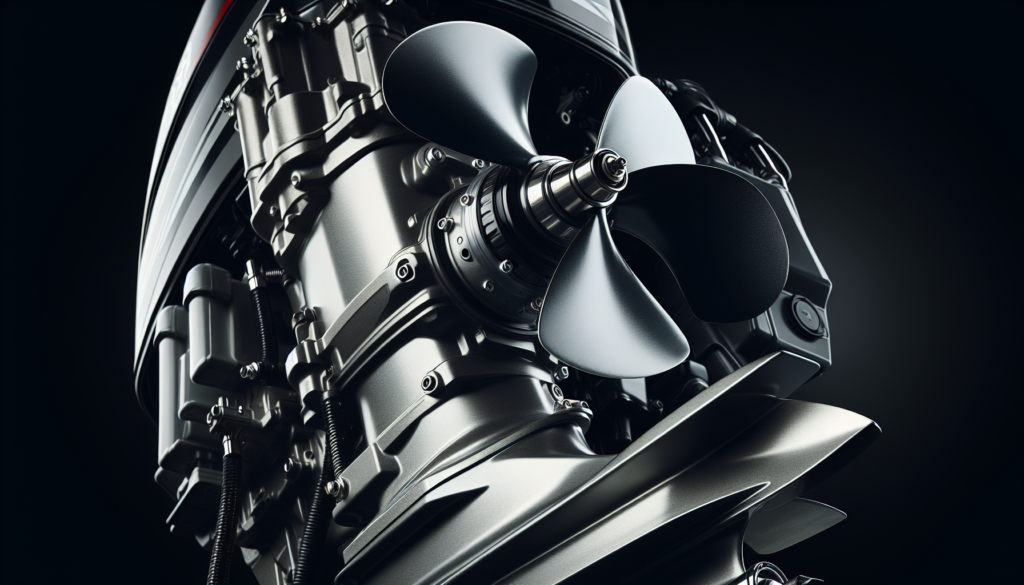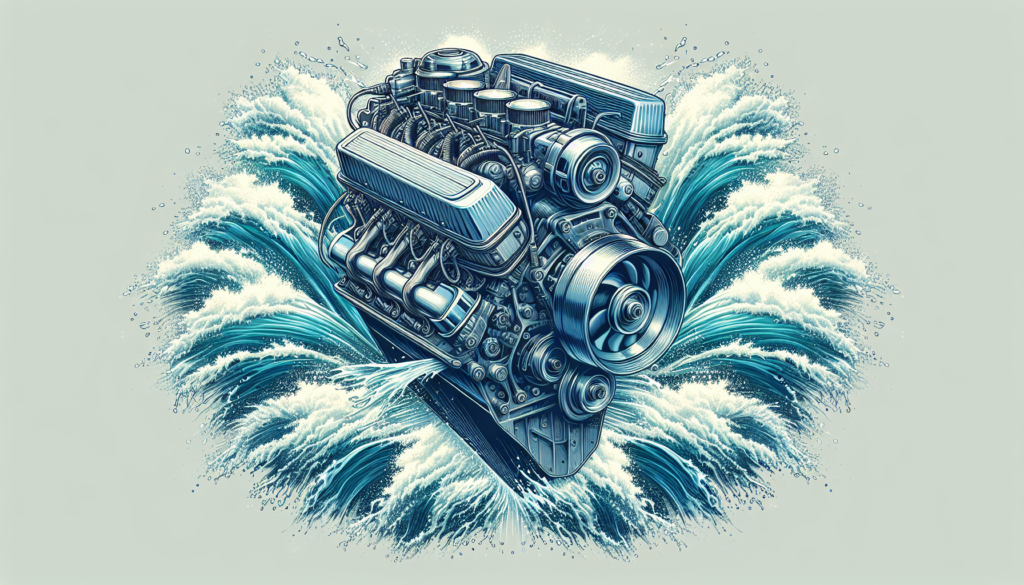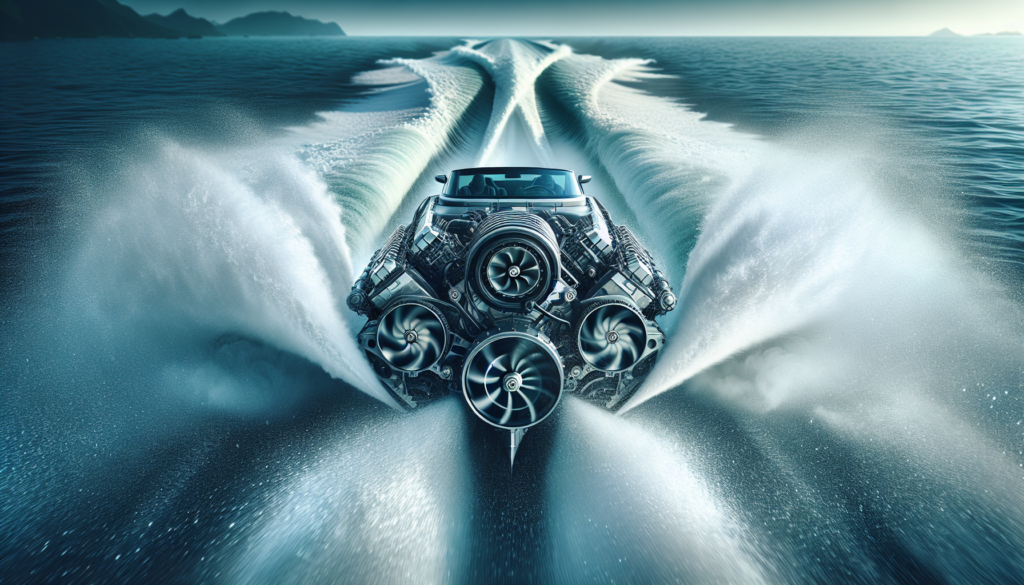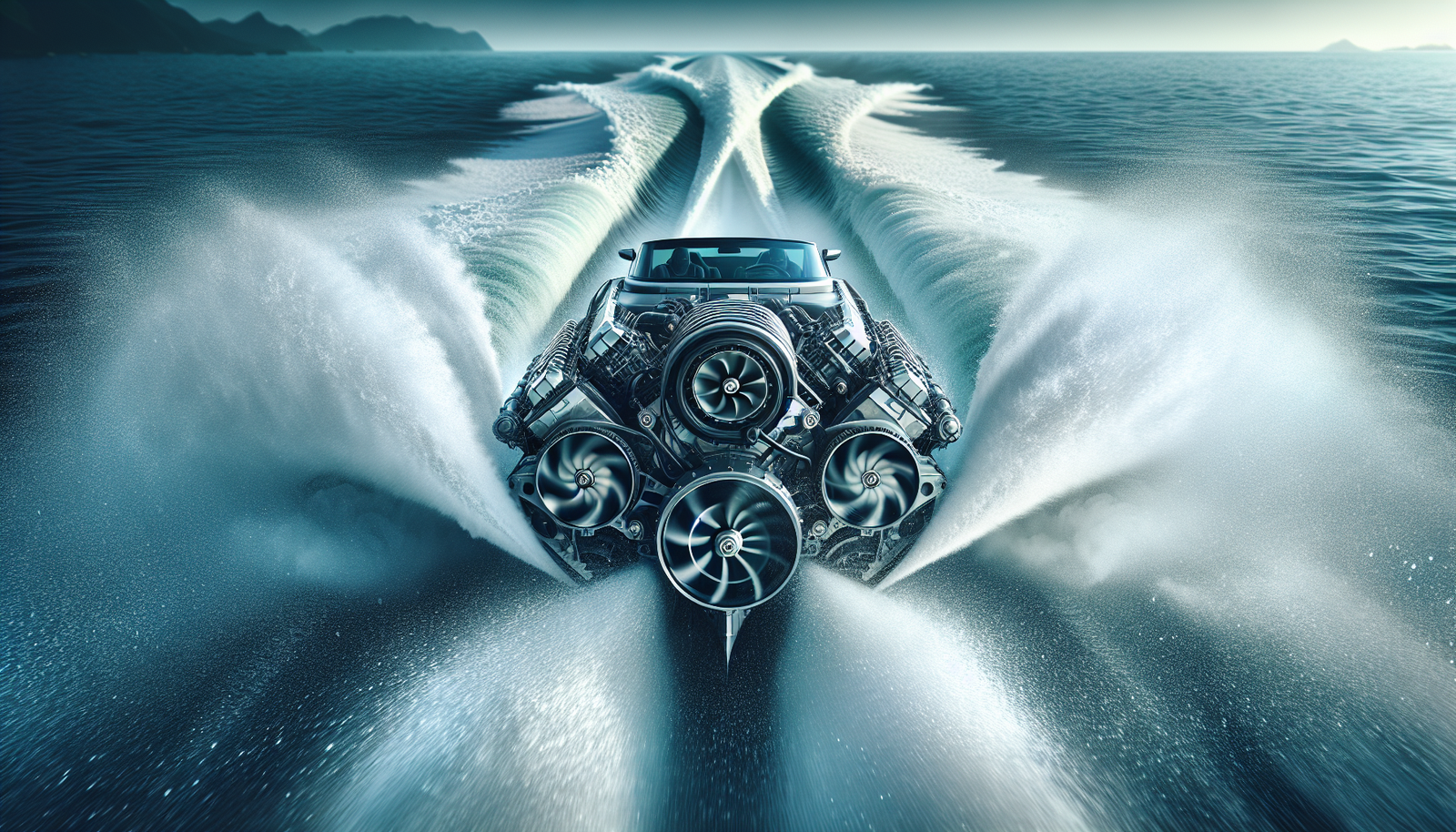Picture yourself behind the wheel of a powerboat, gliding smoothly over the water with speed and precision. Unleashing the throttle, you feel the engine’s raw power beneath your feet, effortlessly delivering a thrilling ride. This thrill doesn’t simply stem from good design or a spectacular stereo system but from something much more essential – horsepower. Yet, how does horsepower truly affect the performance of a boat engine? In “The Impact of Horsepower on Boat Engine Performance“, you’ll gain a detailed understanding of this correlation, exploring factors such as speed, acceleration, torque, and fuel efficiency. This knowledge will not only satiate your curiosity but potentially guide your next boat purchase. Get ready to embark on a fascinating journey into the world of boats and their engines.
Understanding Horsepower
When talking about engines, we often hear about horsepower. But what exactly does it mean?
The definition of horsepower
Horsepower is essentially a unit of measurement that quantifies the available power in an engine. It’s among the key methods that help in differentiating the power potential among various engines. When a boat or car has more horsepower, it signifies that the engine can work harder and consequently, yield more work over time.
The history and origin of horsepower
Horsepower has an intriguing history. In the 18th century, a famous inventor and engineer named James Watt was trying to market his improved steam engine. Notably, he devised the term ‘horsepower’ as a way to give people a familiar reference, enabling them to understand the power his steam engines could provide. The primary comparison here was to a draft horse, a commonly used work horse during that time. A single unit of horsepower was defined as the amount of work a horse could do over a certain amount of time — specifically, lifting 550 pounds of weight one foot in one second.
How horsepower is calculated
To calculate horsepower, there’s a specific formula that’s used. This formula is torque multiplied by RPM, and then divided by 5252. The torque figure is the force required to twist the crankshaft when the engine is running. This calculation, when applied correctly, gives you the horsepower output of the engine. It’s worth mentioning that measuring torque requires specialist equipment and is usually done by manufacturers rather than individuals.
Different types of horsepower: brake horsepower, indicated horsepower, etc.
There are different types of horsepower, which serve different purposes. “Brake horsepower,” for example, refers to the horsepower that an engine produces before the loss of power caused by the gearbox, alternator, differential, water pump, and other auxiliary components. On the other hand, “indicated horsepower” is the power developed in the combustion chamber, and it’s calculated from the pressures of the cylinders.
The Role of Horsepower in Boat Engines
Understanding boat engines: two-stroke and four-stroke
There are two key types of boat engines: two-stroke and four-stroke. Two-stroke engines complete a power cycle with two strokes of the piston during one power cycle, which means they’re generally more powerful for their size, lighter, and with fewer moving parts. Four-stroke engines, on the other hand, operate on four piston strokes during one power cycle, making them smoother, more efficient, and better for the environment. The choice between the two comes down to personal preferences and the intended use of the boat.
How horsepower affects the propulsion of a boat
Horsepower, in essence, is the primary driver of boat propulsion. The more horsepower an engine has, the more force it can generate to push the boat through the water. A higher horsepower engine can enable the boat to move faster and carry heavier loads.
The relationship between horsepower and engine displacement
Engine displacement refers to the size of the engine, usually measured in liters or cubic inches. There’s a direct correlation between engine displacement and horsepower. A larger engine displacement typically results in a higher horsepower output, as it means there’s more space for air and fuel in the cylinders, which leads to more power.

Importance of the Right Horsepower to Weight Ratio
Explaining horsepower to weight ratio
In simple terms, the horsepower to weight ratio is a measure of performance. It’s calculated by dividing the total weight of the boat by the current horsepower. This ratio plays a key role in determining a boat’s ability to carry loads, acceleration capabilities, and overall performance.
How weight impacts horsepower requirements
In the simplest terms, the more weight a boat has to carry, the more horsepower it needs to move. That’s because weight increases the amount of force needed to move the boat forward, uphill, or against the current.
Ideal horsepower to weight ratios for different types of boats
Depending on the kind of boat you have, there are different ideal horsepower to weight ratios. For example, a performance boat might need a ratio of 1:10 (one horsepower for every ten pounds of weight), while a family cruiser might only need a ratio of 1:20. It’s crucial to find the right balance for power, efficiency, and performance.
Influence of Horsepower on Boat Speed
How engine horsepower determines potential speed
The connection between horsepower and potential boat speed is direct. The more horsepower a boat engine has, the faster it can go. However, more horsepower doesn’t automatically mean you will always go faster. The shape and weight of the boat also play a significant role.
Effects of exceeding maximum horsepower ratings
Even though more horsepower means more speed, exceeding your boat’s maximum horsepower rating is not recommended. When you add more horsepower than your boat was designed to handle, you run the risk of damaging the boat’s structure and compromising its stability. It can also make the boat harder to control, increasing the likelihood of accidents.
Demerits of insufficient horsepower
On the flip side, insufficient horsepower can lead to poor performance, slower speeds, and increased wear and tear on the engine as it strains to move the boat. This might also lead to higher fuel consumption and costs over the long-term.

Efficiency and Fuel Economy
Impact of horsepower on fuel consumption
Higher horsepower engines have the potential for greater fuel consumption, simply because they’re capable of doing more work. However, this doesn’t mean you’ll always use more fuel just by having a high-horsepower engine. The actual amount of fuel used depends on how hard you’re making the engine work.
The benefit of high-horsepower engines for efficiency
High-horsepower engines can be more efficient at cruising speeds. Because they have more power, they don’t have to work as hard as lower horsepower engines to maintain the same speed. This means they can often get better fuel economy at those speeds.
Increasing fuel efficiency through optimal horsepower
Choosing the right horsepower for your boat can do wonders for your fuel efficiency. If you choose too little horsepower, the engine will struggle to move the boat, using more fuel. Too much horsepower, and you likely won’t use the engine to its full potential, wasting fuel again. Therefore, having the right balance is key to fuel efficiency.
Impact of Horsepower on Boat Maneuverability
How horsepower relates to maneuverability
More horsepower can offer improved maneuverability as it allows the boat to respond quickly to throttle adjustments, affecting factors like turning and quick starts. It’s vital for situations that require quick changes in direction or speed.
The role of horsepower in turning and handling
In many instances, having a higher horsepower equates to better handling and turning capabilities in a boat. The motor power can facilitate in crucial maneuvers or when a swift turn is needed, like in a rescue mission.
The downside of too much horsepower for maneuverability
But remember, more power isn’t always better. Too much horsepower might make a boat difficult to control and potentially dangerous, especially at high speeds. Always choose a boat and engine that fit your comfort level and skill.

Horsepower and Engine Longevity
Effect of high horsepower on engine wear
High horsepower engines tend to experience more engine wear over time, simply because they are capable of higher performances and often subjected to more strenuous activities. This is also partly because the greater power produced in high-horsepower engines leads to higher operating temperatures.
Correlation between low horsepower and engine longevity
On the contrary, lower horsepower engines are generally slower and operate at lower temperatures, which can decrease engine wear and contribute to a longer engine life.
Balancing horsepower and engine life
The key to prolonging your engine’s life while having enough power for your needs lies in not overdoing it. Unfortunately, using more horsepower than necessary can cost you more in terms of wear and tear, and ultimately, engine life.
The Role of Torque in Boat Engine Performance
The relation between horsepower and torque
Torque refers to the turning or twisting force that an engine generates. While horsepower measures the work the engine can do, torque measures how quickly that work can be done. In other words, torque is what gets a boat moving, and horsepower keeps it moving.
How torque influences boat engine efficiency
A boat engine with high torque can get to its top speed more quickly and maintain that speed more efficiently. This is because a high-torque engine doesn’t have to work as hard to generate power.
Impact of high torque on high-horsepower engines
High-horsepower engines rely on high torque to deliver their full power potential. Engines with high torque can provide quick acceleration, making them perfect for boats used in activities like water skiing or racing.

Choosing the Right Horsepower for Your Boat
Factors to consider when choosing boat engine horsepower
Several factors should be considered when choosing the correct horsepower for your boat, including the boat’s weight, its intended use, the fuel capacity, the number of people typically on board, and the operating conditions.
The importance of boat type and intended use
The type of boat and its intended use will significantly influence the horsepower choices. For example, a speed boat or fishing boat might require a higher horsepower engine compared to a small leisure boat used for occasional outings.
Understanding caps and restrictions on horsepower
It’s also important to understand any caps or restrictions on the horsepower you can have, which are usually specified by the boat manufacturer. Abiding by these restrictions can help ensure maximum safety and efficiency.
Advancements and Trends in Boat Engine Technology
Latest trends in boat engine horsepower
In the world of boat engine technology, we’re still seeing increases in horsepower. Manufacturers continue to push the limits, crafting engines that are both more power-packed and efficient.
How technology is improving horsepower efficiency
Modern technology allows manufacturers to build engines that achieve high horsepower using smaller and lighter engines. Advanced fuel injection and combustion technologies also enable these engines to deliver more power while still being efficient and environmentally friendly.
Environmental impacts and considerations of horsepower
Engine technology also takes environmental impacts into consideration. New, high-horsepower engines are being designed to reduce emissions and noise, and to use fuel more efficiently, which is not just good for your pockets, but also for the environment.
In conclusion, understanding horsepower is key to getting maximum performance and efficiency out of your boat. Remember, the right horsepower for you depends on your boat and your needs. Always think about safety and efficiency when choosing the horsepower of your engine.

